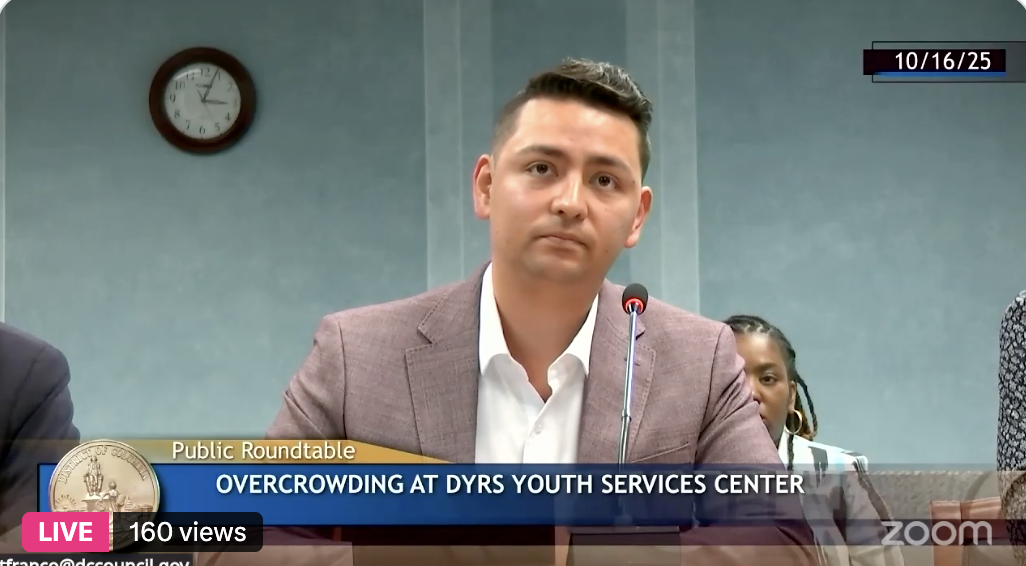Testimony on Overcrowding Conditions at DYRS
The Executive Director of the Wanda Alston Foundation testified before the Committee on Youth Affairs on the overcrowding conditions at DYRS and the deep connection between incarceration and LGBTQ+ youth.
Dear Councilmember Parker and Members of the Council,
My name is Cesar Toledo, and I am the Executive Director of the Wanda Alston Foundation, one of a few queer-led organizations in DC that provides gender-affirming housing and support services to LGBTQ+ youth.
I’m here to raise concerns about the overcrowding conditions at DYRS.
In July of this year, NBC4 reported that a trans girl placed in a male unit suffered a broken jaw after being attacked by a group of youth. That same investigation revealed that 51 kids reported injuries from assault - one of the highest ever recorded.
This crisis highlights a system in need of urgent reform. As a housing provider for young queer people, I want to spotlight the deep connection between incarceration and LGBTQ+ youth.
The Williams Institute found that more than 54% of incarcerated LGBTQ youth reported experiencing four or more adverse childhood experiences, including various forms of abuse, neglect, and household dysfunction. In contrast, 6% of non-LGBTQ youth in public schools reported the same.
A study by American University College of Law found that LGBTQ+ youth represent 20% of all youth in the juvenile justice system, despite representing only 5-7% of the US youth population. Also, LGBTQ+ youth are three times more likely to have been removed from their home by social workers compared to straight youth.
It’s clear that queer youth, especially those of color, are disproportionately funneled into the prison-to-pipeline.
Identity-based rejection and marginalization set off a cascade of risks, including school disengagement, homelessness and unsafe survival behaviors. We know that these disparities stem largely from family rejection and a lack of acceptance at home because of their sexual orientation or gender identity. To survive, LGBTQ+ youth are often forced to rely on survival strategies that place them at risk for contact with law enforcement and further victimization.
At the Foundation, about 1 out of 4 of the youth we currently support and house have a background with the criminal justice system and face unique challenges in rebuilding their lives in stable housing. As youth re-enter our community and attempt to find safe housing, we must expand culturally competent transitional housing programs that offer safety, support, stability, and a real path out of the prison pipeline.

